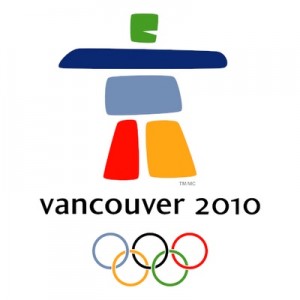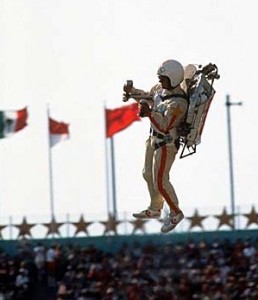Is it all Downhill from here for Winter Olympics?
 Historical categories are notoriously imprecise. As important as notions such as modernity and postmodernity are for our understanding of past and contemporary worlds ‑ and however much they underscore concepts and theories in disciplines such as sociology and media studies ‑ determining the beginning of any such era appears a perilous affair.
Historical categories are notoriously imprecise. As important as notions such as modernity and postmodernity are for our understanding of past and contemporary worlds ‑ and however much they underscore concepts and theories in disciplines such as sociology and media studies ‑ determining the beginning of any such era appears a perilous affair.
There is thus a fair amount of professional insanity in suggesting that I think I know better. In fact, I even know the exact date of beginning of the postmodern era: 28th July 1984, the day of the opening ceremony of the 1984 Summer Olympics in Los Angeles. At the tender age of twelve I had persuaded my parents to allow me and my cousin to stay up and watch the opening ceremony. Having drifted in and out of sleep following the broadcast from L.A. on Western European Time, I could no longer be certain which realm of imagination – television or dreaming ‑ the rocket man flying into the Coliseum belonged to when I woke up on the living room sofa the next morning. The Los Angeles games offered a dramatic prefigurement of what was to come: the disappearance of the Communist block (the Soviet Union and most of its allies boycotted the 1984 games in retaliation for the US led boycott of the Moscow games four years earlier), the emerging symbiosis between celebrity culture and professional sports and the dramatic rise of spectacle and consumer culture ‑ the future had arrived and each subsequent Olympic summer games further underscored the global, postmoderm trajectory of the Olympic movement post Los Angeles.
At the opposite end of the spectrum, Olympic winter games are a rudiment of a bygone modern era of (television) culture. Whereas summer games have adopted to changing viewing habits by adding sports that feature global sport stars through the (re)inclusion of tennis (1988) or golf (2016) and the opening up of the competitions to professional athletes such as the 1992 US basketball “Dream Team”, Winter Olympics have essentially remained fifteen ways of sliding.
In televisual terms, the types of sports featured in the Winter Olympics are those associated with the modern era of broadcasting: Alpine skiing, speed skating, biathlon, luge, or bobsled are rarely supported by large enough fan cultures to stand on their own televisual feet. Instead they have survived throughout television history as part of the magazine format in the mould of BBC’s Grandstand, the weekend afternoon sports magazine programme that ran form the early days of television in 1958 until its demise in 2007 when in a deregulated media market the “sports-interested viewer” had given way to the fan and enthusiast of individual sports such as football, baseball, basketball, tennis or Formula One motor racing. During the Winter Olympics this magazine type coverage of different competitions under the banner of winter sports is briefly revived – yet only by resorting to the life-support machine of the X-factorisation of winter sports coverage as national broadcasters have shifted away from the universal coverage of different sports events to the human interest stories surrounding particular competitors from that country.
The nation, in fact, is the true marker of Winter Olympics’ inherently modern nature. Summer games have increasingly become a platform for global sporting celebrities from Carl Lewis to Usain Bolt and Michael Phelps, transcending the national as (sole) frame of reference. Olympic winter games, in contrast, remain a strangely local phenomenon in a globalising world. In its 86 year history Olympic Winter games have been staged in only ten countries, all in the northern hemisphere. The fame of Winter Olympians has accordingly remained infinitely more localised and ephemeral. Competitors are often barely known even by their national audiences. Former stars such as surprise 1984 Olympic downhill champion Billy Johnson or four times ski jumping gold medallist Matti Nykänen have not only been quickly forgotten by the wider public, but have struggled financially and personally as their fame dissipated. The precariousness of Winter Olympians’ fame so closely tied to national success and thus so interchangeable from games to games is possibly best illustrated by the fact that even the memories of those whose achievements remain outstanding among Olympians such as US American speed skater Eric Heiden pale in comparison to who remains one of the best-known stars of the Winter Olympics of all times: British ski jumper Eddie “the Eagle” Edwards – an athlete who became known for his dramatic lack of competitiveness that made every jump he managed without crashing a seemingly greater achievement than the competition’s longest and most daring jumps.
Danger and risk have endured as further markers of Winter Olympics archaic traditions. Even before tonight’s Opening Ceremony, Georgian luger Nodar Kumaritashvili fatally crashed during a training run on the ice track in Whistler. The menacing nature of high speed winter sports not only sets them apart from most sports at the Summer Olympics, but bears all the hallmarks of sport – to rather liberally borrow from Carl von Clausewitz’s words – “as the continuation of war with other means” – echoed in the words of Georgian Minister for Culture and Sport, Nikolos Rurua, who evoked the war between Russia and Georgia during the 2008 Beijing Olympics (or, in his words “invasion of Georgia by Russia”) and called Kumaritashvili “a fallen comrade”.
It is not without logic that the Cold War provided winter games’ most natural habitat. In the bipolar world of the second half of the 20th century winter games served as snow-covered stage for the confrontation between ideological power blocs, one that culminated and crystallised in the finale of the 1980s Olympic ice hockey tournament in Lake Placid between the USA and the USSR – one of the last occasions when Americans could resort to a narrative of the agency of the underdog overcoming, against all odds, the seemingly insurmountable might of the system of their opponents – a story, one imagines, sworn enemies of the United States like to tell themselves these days. Much like the James Bond franchise, Winter Olympics have never been quite the same again since the fall of the Berlin Wall.
 For the next sixteen days, the Olympic winter games offer a journey into our recent, modern past; to some an enjoyable walk (or, rather, slide) down memory lane, to others a reminder of traditions best kept in the past. Vancouver as a distinctly multicultural and global city, of course, holds as great a promise of transporting Winter Olympics into the world of the 21st century as any host city. But I doubt they have a rocket man.
For the next sixteen days, the Olympic winter games offer a journey into our recent, modern past; to some an enjoyable walk (or, rather, slide) down memory lane, to others a reminder of traditions best kept in the past. Vancouver as a distinctly multicultural and global city, of course, holds as great a promise of transporting Winter Olympics into the world of the 21st century as any host city. But I doubt they have a rocket man.



[…] Sandvoss has some interesting thoughts on the Winter games over at Antenna; my one contention with his argument that the games struggle to create “stars” like the […]
So that my point isn’t just half-present within the above pingback, I’ll expand here.
I agree that the Winter Olympics have not embraced the sense of global spectacle as a whole, but I think there are exceptions in nations where Olympic success is less common (See: the cultural significance of Stephen Bradbury lucking into Australia’s Winter Olympic gold, creating a slang term in the process), and certain events like figure skating tap into a culture with significant fan bases and potential for intrigue/suspense (plus fame that can be translated into a professional career with Stars on Ice, etc.). The games aren’t built for this type of coverage as the Summer Games tend to be, but the potential is there nonetheless, even if the “fifteen ways of sliding” sports tend to resist these distinctions.
What you correctly point out is that much of what defines the Winter Games is efforts to create the human interest stories as the ongoing narrative, viewing the sport as secondary. NBC’s media coverage of the games was given a blow (and yet, simultaneously, a boost) when Lindsay Vonn reported her shin injury – on the one hand, it meant that she might not get to compete in as many events, but on the other hand it allowed for more coverage across their various platforms of her story, and if she ends up competing it will make viewers that much more eager to tune in, even if she’s far less likely to earn a medal.